
Having a chat with curator Myriam Blundell (photo by A. Smithee)
News, notes, screenings and ramblings from Directors Lounge, the mothership of media art.

Having a chat with curator Myriam Blundell (photo by A. Smithee)
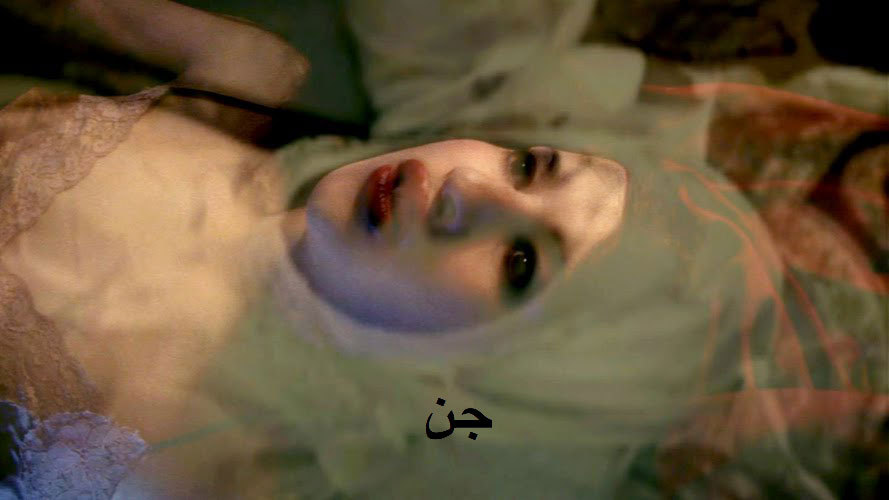
PROFANE | A REVIEW
Psychedelic film as a genre is a slippery slope to walk across where making a bad decision can thrust a project helplessly into cliché. Often filmmakers fail under the decoy of video “Op-Art” which is easy and anyone who’s sat in front of an editing program with a bag of grass can tell you that it only takes five minutes to make. Good psychedelic film and video is sensual and has a narrative or a point or a purpose that fulfils a desire to the brink of madness. It’s not always pretty and often flirts with being uncomfortable. It’s about overwhelming the senses with spiritual and emotional subtext connecting dots between existentialism and essentialism through figurative micropsiac and macropsiac lenses simultaneously. If you can do that then it’s possible to make a good psychedelic film. Usama Alshaibi is one of those few capable people.
Profane is very smart and confident and honest. The film bounces between consonance and dissonance in an algorithm typically reserved for musical composition. The first melody is the camera work: at times annoying and at others intensely beautiful but always expertly edited. The second melody is the characterizations: The most notable actor being Dejan Mircea, I could have met him in real life. He keeps the film from falling into cliché with a convincing performance that makes one want to take him away from the mean messed-up girls and go have a nice conversation somewhere more calm. He’s an intelligent person who is interesting to listen to. One would feel instantly at ease in his presence. When this character speaks you forget that you are watching video and that this is a psychedelic film. Molly Plunk plays a character so erratic it would be worth seeing her play something totally opposite in another film to find the range of her colour. She has a brilliantly awkward moment toward the end sitting tied up naked in front of an Imam. Manal Kara plays a beautiful young woman with the daunting task of maintaining balance between the two aforementioned characters, her desires, and a character no one can see. Her final scene played the perfect chord to end this allegory. The third melody is the soundtrack: very rarely do I ever feel that independent film puts enough effort into the score but this was a strikingly poetic matchup. The three melodies would scatter apart into chaos for a good deal of the time and then coalesce into deeply beautiful moments of heightened reality. This is the kind of film I came out thankful for seeing and it belongs in the dvd collection of anyone who truly appreciates experimental and psychedelic filmmaking.
I saw this film at the Director’s Lounge on Christinenstraße 18 in Berlin Mitte. It’s a nice sized space for showing work. They also offer good wine instead of the typical cheap crap that turns the stomach sour after a glass offered in 99% of other artist spaces. Anyone who likes wine will happily pay the extra Euro for a glass of something drinkable! It’s also a very friendly environment where people smile at each other and speak freely. I must get to know these people better!
Ceven Knowles
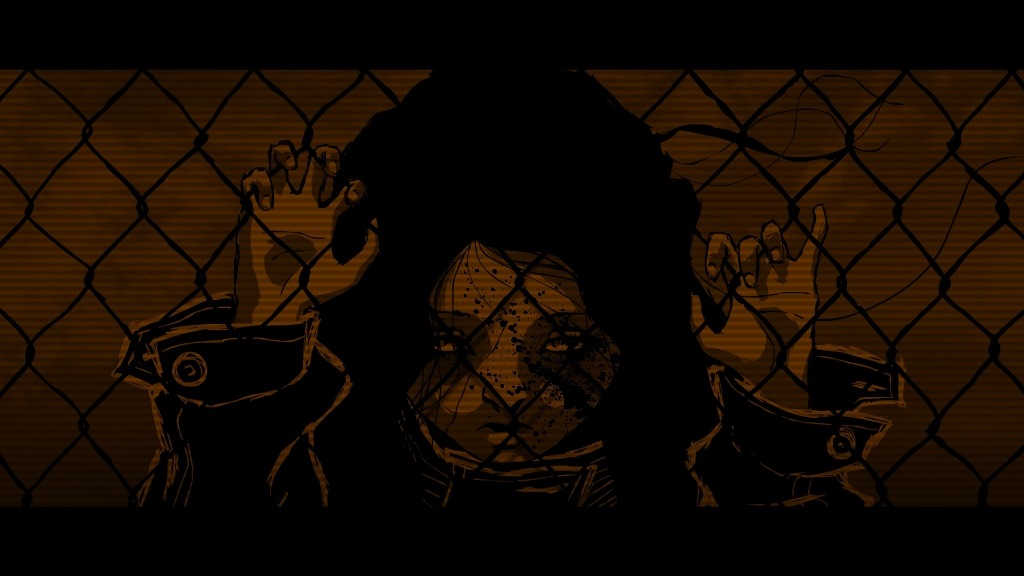
DANGER GLOBAL WARMING | Bruce Knox
shown as part of kaleidoscope
Beautifully animated and edited, this piece is a sharp little gem that is the platinum standard for the short film genre. This visually striking work that miraculously manages not to overshadow the urgency of its subject matter is not to be missed. An effort that should generate a great deal of interest in environmental circles, as well as a solid place in the cinematic firmament.
-Angela Turk
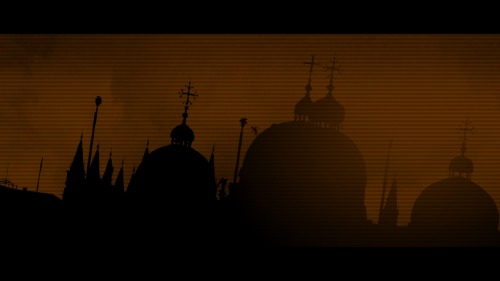
Bruce Knox DE Danger Global Warming 7min 3s 2010 (world premiere)
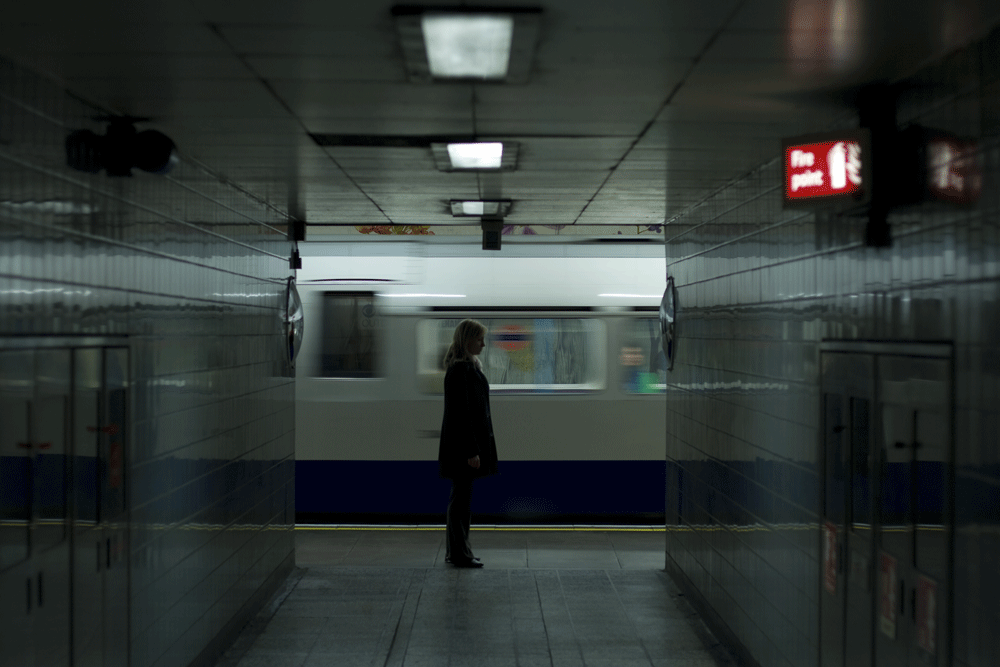
ECHOES BY ROB BROWN | A REVIEW BY ANGELA TURK
shown as part of three stories
A heart-stopping look into the sex-trafficking industry and purveyors of the flesh trade. A seven-week pregnancy introduces a crisis for both procurer and victim as the story unfolds, peeling back layers of a very undocumented and under-examined criminal environment. Brown’s ability to pull the viewer into an emotional vice grip in such time-constrained parameters is a testimony to some very sure-footed filmmaking. A shining effort.
-Angela Turk
Rob Brown GB Echoes 11min 38s 2009

photo by Sheila Rock
MO 14th part one, in attendance of Michael Nyman: 6pm
part two, Myriam Blundell presents Cine Opera: 8pm
CINE OPERA (selected works) | AN EVENING WITH MICHAEL NYMAN
in cooperation with Myriam Blundell Projects
in attendance of Michael Nyman and Myriam Blundell
“When I started there was no intention to make films or a book of photographs. It happened because I was there, had a camera and an eye and a curiosity, my own visual diaries of a distracted but persistent mind.”
Michael Nyman, 2009
CINE OPERA is a series of video works shot by composer, artist and filmmaker Michael Nyman in various parts of the world during the past fifteen years. Drawn from his globe-trotting travels, introspective journeys and life-changing discoveries, the series is a collection of 50 cinematographic records documenting various capsules of every-day life, spontaneous events and chosen circumstances through first-hand observation. The work is an attempt to capture living cultures and forgotten traditions in a format which illustrates a diaristic study of modern-day life. Although, an obvious parallel can be made with the current reality TV phenomena in pop culture and in some cases to the polemic argument over pervasive CCTV surveillance in most countries, Nyman’s intentions go beyond the act of simple observation, and the obvious criticism of continuous scrutiny and voyeurism in contemporary societies. “Cine Opera” appropriates content from everyday life and delivers a quirky yet brutally truthful view of the world in which we live. The footage is blissfully accompanied by Nyman’s soundtrack which is deeply influenced from borrowed, local sounds and blended with the vast range of his musical repertoire. As a result, the mundane becomes peculiar, the unknown romantic, and the forgotten suddenly recalled. The series emerges as a thorough study of our uneasy times and attempts to reflect on the human condition in this nascent century.
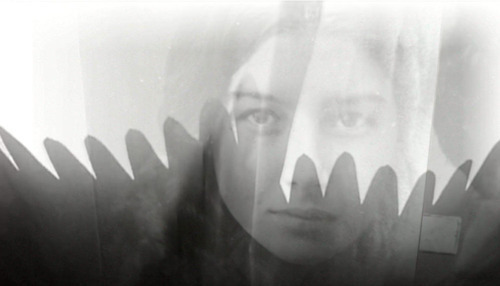
still from Michael Nyman UK Witness I
As one of Britain’s most innovative and celebrated composers, Michael Nyman’s work encompasses operas and string quartets, film soundtracks and orchestral concertos. Far more than merely a composer, he’s also a performer, conductor, bandleader, pianist, author, musicologist and now a photographer and film-maker.
Nyman first made his mark on the musical world in the late 1960s, when he invented the term ‘minimalism’ and, still in his mid-twenties, earned one of his earliest commissions, to write the libretto for Birtwistle’s 1969 opera Down By The Greenwood Side. In 1976 he formed his own ensemble, the Campiello Band (now the Michael Nyman Band) and over three decades and more, the group has been the laboratory for much of his inventive and experimental compositional work.
His most notable scores number a dozen Peter Greenaway films, including such classics as The Draughtsman’s Contract and The Cook, the Thief, His Wife & Her Lover; Neil Jordan’s The End Of The Affair; several Michael Winterbottom features including Wonderland and A Cock And Bull Story; the Hollywood blockbuster Gattaca – and, of course, his unforgettable music for Jane Campion’s 1993 film, The Piano, the soundtrack album of which has sold more than three million copies. He also co-wrote the score for the 1999 film Ravenous with his friend and sometime protégé, Damon Albarn. Most recently his music was used in the 2009 BAFTA award winning and Oscar nominated film, Man on Wire.
His reputation among critics is built upon an enviable body of work written for a wide variety of ensembles, including not only his own band, but also symphony orchestra, choir and string quartet. He has also written widely for the stage, his operas including The Man Who Mistook His Wife For a Hat (1986) and Facing Goya (2000). He has provided ballet music for a number of the world’s most distinguished choreographers. In 2008, he published the sumptuous photo-book Sublime. His first major UK exhibition was held at the De La Warr Pavillion –Bexhill-on-sea in 2009 featuring ‘Videofile’, a comprehensive selection of video works and photography extracted from CINE OPERA; a body of work of 50 short films and from his incredibly prolific photographic archives. He has also collaborated with several contemporary artists, including Bruce McLean, Mary Kelly, Damon Albarn, Carsten Nicolai and Kultlug Ataman. Nyman’s visual work has also been exhibited in various public institutions, such as the Tate Modern in London, the Reina Sophia Museum in Madrid, and the Museum of Modern Art in New York.
Most recently, Nyman has released his first feature film – NYman with a Movie Camera. The film presents a shot-by-shot reconstruction of Dziga Vertov’s iconic film, Man with a Movie Camera, replacing the original sequences with footage from Nyman’s own film archives. The film premiered at the Toronto International Film Festival in September 2010 and was first screened in the UK a month later at the Barbican Centre in London.
exact screening time might be subject to change
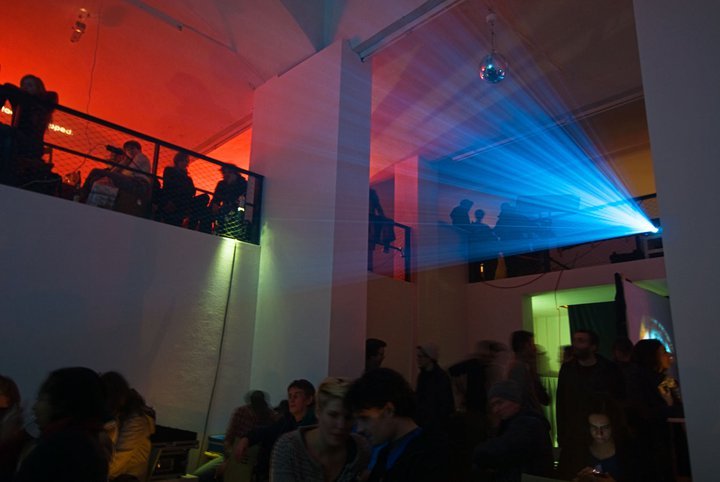
The 7th Berlin Directors Lounge, Opening Reception (photo by Klaus W. Eisenlohr)
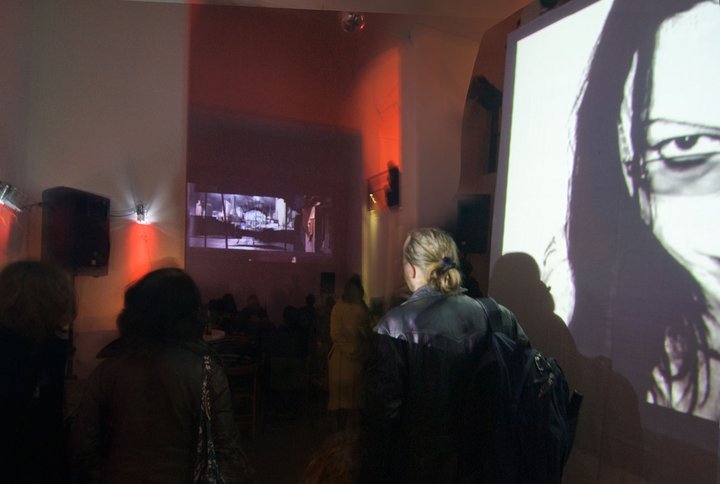
The 7th Berlin Directors Lounge, Opening Reception (photo by Klaus W. Eisenlohr)
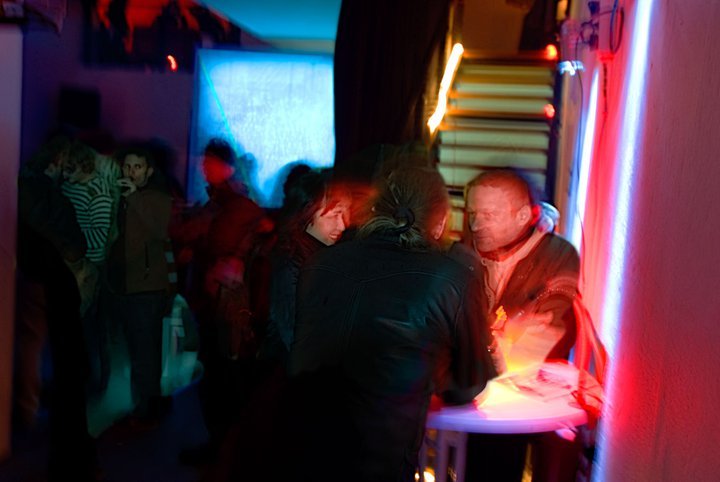
The 7th Berlin Directors Lounge, Opening Reception (photo by Klaus W. Eisenlohr)

the red carpet from dusk till dawn…
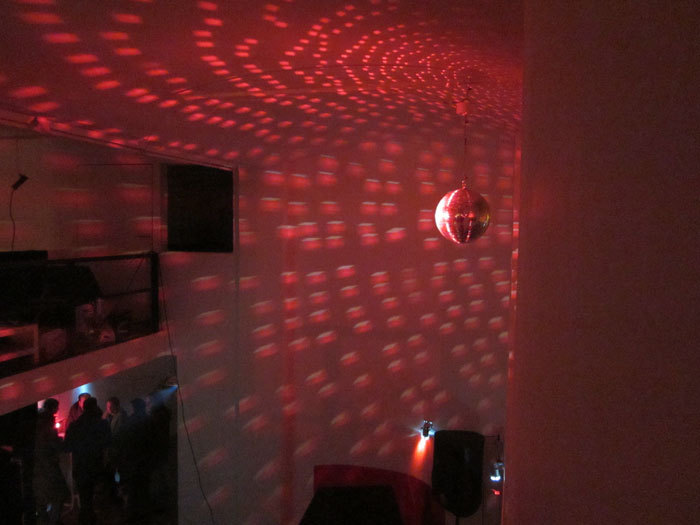
The 7th Berlin International Directors Lounge (photo by J. Murakami)